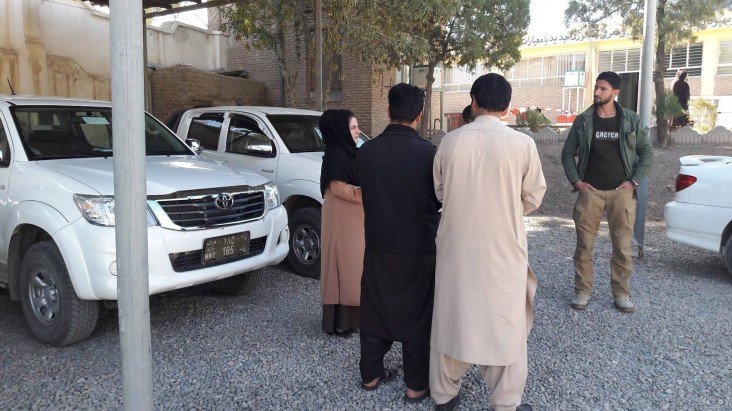Speeches Shim

In Afghanistan, many jobs are not considered traditionally or culturally appropriate for women. Families are often reluctant to allow their female members to work in male-dominated workplaces. For example, less than 26 percent of the civil service in Afghanistan are women. However, many women in Afghanistan are overcoming these cultural restrictions to pursue their careers in this male-dominated country.
Walwala is one of those women. She is a graduate of the USAID-funded Promote: Women in Government (WIG) internship program. With support from her family, Walwala pursued a career in the Afghan government. Soon after completing a one-year internship program with WIG in 2018, she started working as a Transportation Manager at an Afghan government agency in Herat. She currently supervises 11 male staff.
Working in a male-dominated workplace is challenging for Walwala. This is the first time that a woman has held the position. When she started work, Walwala faced resistance from those she supervised. They were not supportive of her as a leader.
Walwala used the managerial and leadership skills from the internship program to overcome these obstacles. By working closely with her supervisees and training them on professionalism in the workplace, she soon earned their respect. “This all happened because of the internship program. Thanks to WIG for making me a good manager and a leader.”
According to the Central Statistics Organization, the government office where Walwala works employs the least number of women across the government with only eight percent of the employees as women.
For Walwala, this job is the first step on her path to self-reliance—which she hopes more women will continue to follow. “Let’s serve our country together with our male colleagues,” she said.
The USAID-funded Promote: Women in Government project, which runs from 2015 to 2020, aims to train over 3,000 female interns for government careers. As of October 2018, the project enrolled over 3,900 women and helped more than 370 women secure employment.
*Name changed to protect identity.

Comment
Make a general inquiry or suggest an improvement.